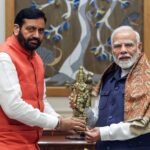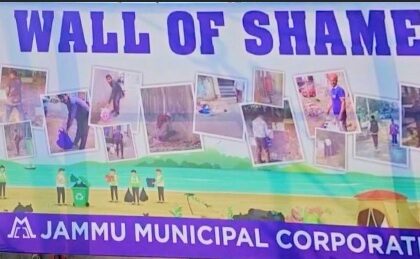Presidential Rule Revoked in Jammu and Kashmir, Paving Way for Democratic Government Formation
||Black and White Digital News ||
||October 14,2024 ||
New Delhi: In a landmark decision, the President of India has issued an official order, **revoking the President’s rule in the Union Territory (UT) of Jammu and Kashmir (J&K). The notification, released by the Ministry of Home Affairs through S.O. 4484(E), indicates that the direct administration by the Union Government will come to an end upon the appointment of a Chief Minister, restoring local democratic governance.
Summary of the Presidential Order:
Revocation Trigger: President’s rule will stand revoked immediately before the appointment of a Chief Minister under Section 54of the Jammu and Kashmir Reorganisation Act, 2019.
Legal Reference: The order is issued under Section 73 of the Jammu and Kashmir Reorganisation Act, 2019, read with Articles 239 and 239A of the Constitution of India, which govern the administration of Union Territories.
Effective Timeline: Although the revocation takes effect upon the Chief Minister’s appointment, the issuance of this order signals that preparations for government formation are underway.
Historical Context and Background:
After the abrogation of Article 370 on 31st October 2019 , Jammu and Kashmir was reorganized into two Union Territories:
Jammu and Kashmir – With legislative powers similar to other UTs, though without full statehood.
Ladakh– A UT without a legislature.
Since then, Jammu and Kashmir has been under President’s rule, managed by the Union Government through the Lieutenant Governor (LG). No elected government has functioned since 2018 when the legislative assembly was dissolved.
The prolonged absence of local governance resulted in centralized control over key decisions in the region, sparking both political and public demands for elections and democratic participation. This new order indicates a shift back toward local governance.
Political Implications :Election Preparations:
The revocation order strongly suggests that the process for elections is in motion or nearing conclusion. The formation of the next government depends on the Chief Minister’s appointment, hinting that electoral exercises may either have been completed or scheduled soon.
Political partieslike the National Conference, People’s Democratic Party (PDP), BJP, and other regional groups will now actively engage in electoral campaigns and coalition-building.
Restoration of Governance:
With the Chief Minister’s appointment, J&K will transition from Union control to local governance. This will allow for better local representation, enabling the new government to address region-specific issues such as employment, tourism, and security.
This transition reflects the government’s intent to normalize the political situation in the UT and foster trust among the public, especially amid criticisms of prolonged central rule.
What Comes Next?
Elections and Coalition Building : The notification implies that elections or political consultations are at a decisive stage. The Chief Minister’s appointment will mark the official end of central rule and revival of the legislative assembly in J&K.
Local Priorities: An elected government will likely focus on economic revival, infrastructure development, and security concerns, which are paramount for the region’s stability.
Impact on Governance: The shift from Union-led administration to a local government will likely reduce bureaucratic delays and promote more responsive governance, addressing the needs of residents effectively.
Broader Impact on Regional and National Politics:
The restoration of a democratically elected government in Jammu and Kashmir could have a ripple effect across national politics:
Bilateral Relations with Pakistan: The move may ease tensions by showcasing India’s commitment to democratic processes in the region.
Political Signals to Regional Parties: This development will bolster regional political parties’ relevance and legitimacy after years of direct central administration.
National Stability: It marks a major political milestone for the Union Government, underscoring the transition from central control to local governance after five years. This could be a political win for the current government ahead of the 2024 national elections.
This historic order sets Jammu and Kashmir on the path to democratic restoration. With the end of President’s rule imminent, the next steps will involve political consultations and government formation, possibly following an electoral process. The move is expected to restore political normalcy, address local aspirations, and promote inclusive development.
The appointment of the Chief Minister will mark the culmination of this transition, heralding a new chapter of governance in Jammu and Kashmir.









